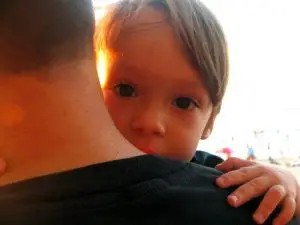“Childhood is supposed to be happy, and if you can’t remember yours with any happiness, what hope have you later, when life starts handing you fresh grief?” Amity Gaige
“A rose gets its color and fragrance from the root, and man his virtue from his childhood.” Austin O’Malley
There are moments in time, that are imprinted in our minds, and often we replay them over and over. If we remember a time a parent brought comfort or support, then at a difficult moment in the present, we recall that thought, and it might bring tears to our eyes. It can be both good memories, and happy memories, but they have remained etched within our brains. We retrieve them when necessary.
I think these are helpful crutches, but I believe we stretch the memories to fit our needs. When someone hurts us, by reflecting on a time when a parent soothed us, or a past love supported us, we ache for that time period and resent the present. When our mood changes for the better, we place the memory into the back of our minds, and keep it handy to summon it again when necessary.Perhaps the past wasn’t quite as tender, as we make it, and we leave out the bad pieces, only focusing on the good. That is fine, as long as we don’t confuse the reality of the situation. The past with its problems and emotions, should remain in the past. Recalling happy times is wonderful, but the poorer times in the present, may seem to get exaggerated, when compared to the past. It is helpful to use the comforting thoughts of the past, as a support for the present, but when the pain is subsiding, accept the embellishment we made of our past.
No one from our earlier years, is as good or as bad as we portray them to be. They were humans with their vices and virtues. It is as harmful to forget their bad effects, as it is to forget the worth. When we fight with our husbands, a previous love appears awesome. We put their ill features out of our minds. Same is true with our parents. We sometimes recall everything good and block the meanness. Likewise we might remember the hurtful moments but delete any pleasant times.
I think we can use the former joyful periods, as a security blanket, when we need it. I also believe we may recall the tough phases of our lives, as a reminder to be thankful for the pleasant present, we are currently enjoying. If we experienced a problematic childhood, use it to be a better parent and discipline with kindness.
Try not to think of any negative occurrences, as wasteful stages. On reflection, as we reminisce, face the ghosts you have hidden, and realize they add dimension to your life in many ways. Embrace the heartache you endured, and accept the anxieties and fear. Turn them around in a way that helps you deal with the current problems in your life. Hiding our emotions doesn’t resolve anything. Facing them gives us the assertiveness we need to diminish them.
What might have seemed terrorizing as a child, when looked at it from an adult point of view, is manageable. Of course I am not talking about huge trauma issues, which may require professional help. I am concerned with the many small issues, that develop with people, due to unreasonable teachings and fears. To this day I do not take a nap, even if I was up half the night. It is totally due to the fact, my mother thought naps were terrible. She reasoned naps were for lazy people. It was drilled. Even during pregnancies it was a no no in my mind. I have resolved this to a point, but the engendering is hard to overcome.
How simple this appears, but the power of our suggestion as a parent is amazing. Parents have far-reaching influence. Likely we must take the good of the learning, and leave behind the crazy notions. The peacefulness of recapturing blissful times is rejuvenating. After the time out, we can cope better with our glitches.
I am left with answering what makes our memories, and I know it isn’t our major outings nor our expensive gifts. It is those times that are full of emotions of any kind. if we are full of high spirits when we are with our family, chances are it will set in cement. Unfortunately, anything forceful of a negative manner, such as anger, screaming, yelling, and intense threatening emotions, will also play back again and again in our recall system.
I would suggest we watch what remembrances, we are embedding within our kids psych. We do not want to teach anger and revenge, with constant fighting. In a divorce situation, we must worry about revenge and hate, as well as distrust. What a child experiences becomes their memory bank.
We should realize how much we underestimate our child’s ability, to observe more than we think. All we need to think about, is how much we remember from our own history. Secrets spurred our interest. Knowing the thoughts of our past, might help us to refrain from the same mistakes. Of course we will definitely make our own errors, but when parenting with thought, our mistakes should be lessened.
How we make others feel, is what will be remembered. When I went through a trying situation, what I remember is anyone who said some needed words or gave me physical contact with a hug. At those moments some of my fear was diminished and released. I and all of us can’t explain the power of the emotions, to work miracles, but none of us can deny it. If you really want to be a good parent, discipline, teach, comfort, and even when you must get angry, always do it with love. That is what will sustain them years from the moment, and all of their memories will be positive.
“When I was five years old, my mother always told me that happiness was the key to life. when I went to school they asked me what I wanted to be when I grew up. I wrote down ‘happy’ They told me I didn’t understand the assignment, and I told them they didn’t understand life.” John Lennon”
What we remember from childhood we remember forever — permanent ghosts, stamped, inked, imprinted, eternally seen.” ~Cynthia Ozick”
“Keep me away from the wisdom which does not cry, the philosophy which does not laugh, and the greatness which does not bow before children.” Khalil Gibran
“I cannot think of any need in childhood as strong as the need for a father’s protection.” Sigmund Freud


